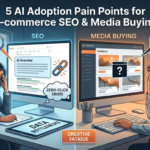When it comes to the public square that is the internet, CEOs that are demanding employees get back to the office are under a bit of fire this week. Employees who have been working from home simply do not see the need to return to the office–and, in general, CEOs haven’t come up with a good counterpoint.
The news cycle has also been shedding light on other CEO mistakes like the decline in leave policies (companies offering paid maternity leave has dropped to an abysmal 35%, according to the latest SHRM survey) and the everlasting avalanche that has become corporate mass layoffs.
Given that layoffs and other cost-cutting measures in the midst of what could easily become a recession do not create long-term stability at most companies, it is baffling that these trends keep rolling through the hills of industry with no stop-block in sight.
Does the responsibility for the public backlash and potentially negative business outcomes rest solely on the shoulders of CEOs? If so, considering a CEO’s primary job duty is to keep their business afloat, does that make them just plain bad at their jobs? Let’s talk about it.
What Is a CEO Supposed to Do?
According to Investopedia, a chief executive officer (CEO) is responsible for “making major corporate decisions, managing the overall operations and resources of a company, acting as the main point of communication between the board of directors and corporate operations.” This is on top of often being the public face of the company, although not always. Here are a few other stats for your consideration:
- 45% of company performance is influenced by the CEO
- CEOs of the 350 largest companies in America earn on average $24 million, or 351 times more than an average employee
- CEOs can set the tone, vision, and sometimes the culture of their organizations.
At Fullmoon, our view of management and leadership in business is not purely profit-driven. Without profit, obviously it’s hard to accommodate the needs of your employees, but at the core of it all, your people are what matters for the long-term success of your company (Our founder, Derek, has further thoughts on this subject here).
Why do we keep seeing the same CEO mistakes happen again and again, which hinder the progress of their people and, by extension, their companies?
What Are the Worst CEO Mistakes in 2022?
CEOs often bear the responsibility for layoffs, and this works both in their perceived favor and to their detriment. If employees and payroll are (on paper anyway) a company’s biggest financial liability, shareholders may praise a CEO who lays off half their staff. The same can play out after revoking benefits. While maybe not as newsworthy as massive layoffs, these changes are signs of a manager who sees employees and their daily lives as playthings, expendable.
By saving the precious dimes of shareholders and producing a beneficial ROI (if you eliminate the “investments,” the returns are huge!), this CEO will rake in a big bonus while leaving tens, dozens, hundreds of people to flounder without a job or living paycheck to paycheck due to paying out-of-pocket for benefits.
On the other hand, you may be thinking, if the CEO goes viral online for layoff shenanigans, then that may hurt public perception of the company. Going viral in this way, however, is not as devastating to an executive’s career as you may think.
How many times have we actually seen a mega-wealthy and influential CEO be successfully “canceled” to the point of not continuing to be a mega-wealthy and influential individual? Unless legitimate criminal activity, workplace and/or sexual harassment, or some other really dark underbelly is involved, not very many. The media cycle continues, temporary setbacks are mitigated, and powerful people wind up in power somewhere new.
So if getting canceled isn’t a big enough negative consequence, is there truly a cost to operating in this way? While some may disagree on a moral level, touting a “business is business” philosophy, there is data to suggest these CEO mistakes we’ve mentioned are worth avoiding.
What Is the Cost of Bad CEO Mistakes?
On paper, if employees are just an asset or an optional service that you pay for, you may genuinely not see the psychological effects of being laid off as anything to concern yourself with. However, these psychological effects are not exclusive to the victims of layoffs or other bad CEO mistakes; instead, they carry over to the “survivors” as well. After mass layoffs, companies can experience an average 12% drop in performance. By letting go of valuable talent, projects in motion come to an abrupt halt, the remaining workers are spread too thin, morale drops and trust in management plummets.
As a caveat to what we said above about “canceling,” in this day and age, viral social media posts about a CEO’s bad-taste actions, whether intentional or not, can dramatically affect company stock, at least temporarily (hello, whenever Elon Musk tweets about any business, ever). This could impact short-term goals, such as snagging a beneficial partnership that would have offered cumulative returns over time, now unavailable to you because of the drama-centered news cycle.
The truth is, arguments about what “the right thing to do” is will never convince a selfish CEO to ever look beyond his own self-interests, even when presented with data or long-term consequences. When the Crying CEO on LinkedIn went viral, we discussed how there is evidence suggesting that CEOs and others in power are more prone to harmful mistakes due to a drop in their brain’s ability to truly empathize. If this is true, is changing a CEO’s mind an uphill climb? Is there any way to avoid making these mistakes as a CEO?
How to Avoid Making Giant Mistakes as a CEO
Is it possible? In short, no, because humans are inevitably going to fail time and time again. We don’t learn well from history, and we have trouble seeing outside of our own bubble without hard work and intentionality.
CEO mistakes are infuriating to workers–and to business leaders hoping to break the mold. At Fullmoon, we are a small team, but we focus on people in everything we do. Taking care of people translates to better clarity, more room for passion, and ultimately improved performance.
How do we achieve this? Follow us along our journey and you may just find out.
We’re pretty blunt about our anti-agency vision and our perspective on the ill-advised business decisions we see around us. Find us on LinkedIn or follow our founder, Derek Chew, if you don’t believe me.







